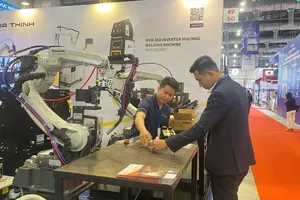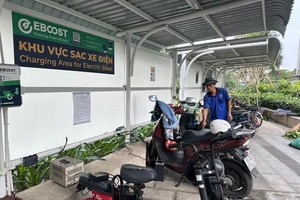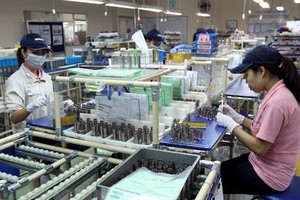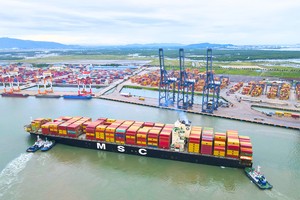The professor made the statement at this morning's scientific workshop 'Digital Economy and TFP: Foundation for economic growth model innovation in Vietnam' held by the Central Policy and Strategy Committee in coordination with Vietnam National University, HCMC, today in Hanoi.
The workshop is designed to clarify and effectively carry out the Politburo's Resolution No. 57-NQ/TW on the development of science, technology, innovation, and digital transformation. It emphasizes total factor productivity - measure of productive efficiency in that it measures how much output can be produced from a certain amount of inputs - a crucial driving force, with the objective of Vietnam achieving high-income status by 2045.
In line with the strategic goals, by 2030, total factor productivity is expected to account for over 55 percent of economic growth, high-tech product exports are projected to reach at least 50 percent. The digital economy is anticipated to comprise at least 30 percent of GDP, with a target of 50 percent by 2045.
This forum serves as a vital platform, connecting policymakers, academia, and business practices, to highlight the essential role of total factor productivity and the digital economy in transforming the growth model and boosting national competitiveness.
Deputy Head of the Central Policy and Strategy Committee Nguyen Hong Son highlighted five key issues for delegates to discuss such as methods for quantifying and calculating the contributions of total factor productivity and the digital economy, the interplay between total factor productivity and the digital economy, strategies to advance digital transformation, effective use and promotion of digital data and opportunities for international cooperation and knowledge exchange.
According to Professor Tan Swee Liang of Singapore Management University, when capital and labor are fully utilized, only productivity gains can drive further output growth. As such, total factor productivity becomes the central engine of long-term economic development.
The digital economy plays a vital role in enhancing total factor productivity through innovation in research and development, cost reduction, and better governance. Technologies such as automation, big data analytics, the Internet of Things (IoT), and artificial intelligence (AI) help streamline production, boost efficiency, and generate added value.
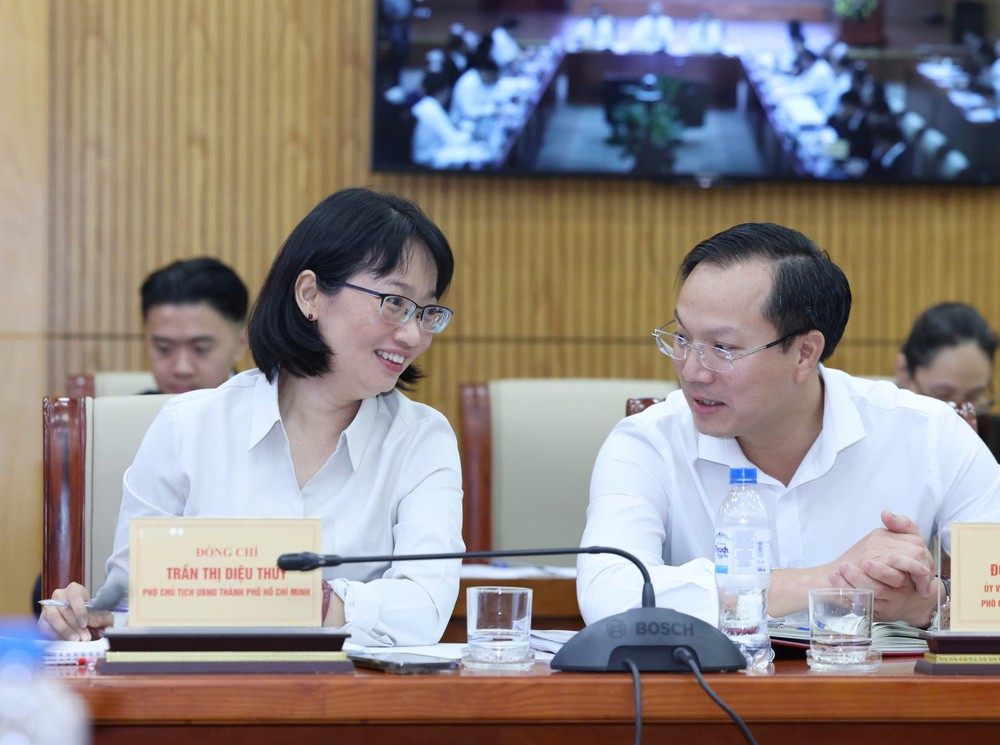
However, these benefits are not automatic—they depend on robust digital infrastructure, a skilled digital workforce, proactive innovation by enterprises, and improvements in institutional frameworks.
Recognizing these challenges, experts have put forward a range of targeted, comprehensive solutions. Government agencies should promptly establish and implement a legal framework for data, AI, blockchain, and cybersecurity. In parallel, the national innovation governance system should be overhauled, with the State assuming the role of institutional architect and leader. Crucially, reforms should also expand university autonomy to fully unlock their potential in research and education.
The subsequent crucial objective is to advance the digital transformation of businesses, prioritizing assistance for small and medium enterprises, cooperatives, and business households via digital transformation support initiatives, including the digital transformation voucher and AI transformation voucher's mechanisms.
Additionally, support for 50,000 innovative enterprises, the development of digital human resources, increased investment in R&D and innovation and the establishment of digital infrastructure and a national data platform are also proposed solutions.
The Central Policy and Strategy Committee will compile the workshop’s recommendations and solutions into a report for submission to relevant authorities. This effort will support the development of key mechanisms and policies, ensuring the effective implementation of Resolution No. 57-NQ/TW in the upcoming time.












